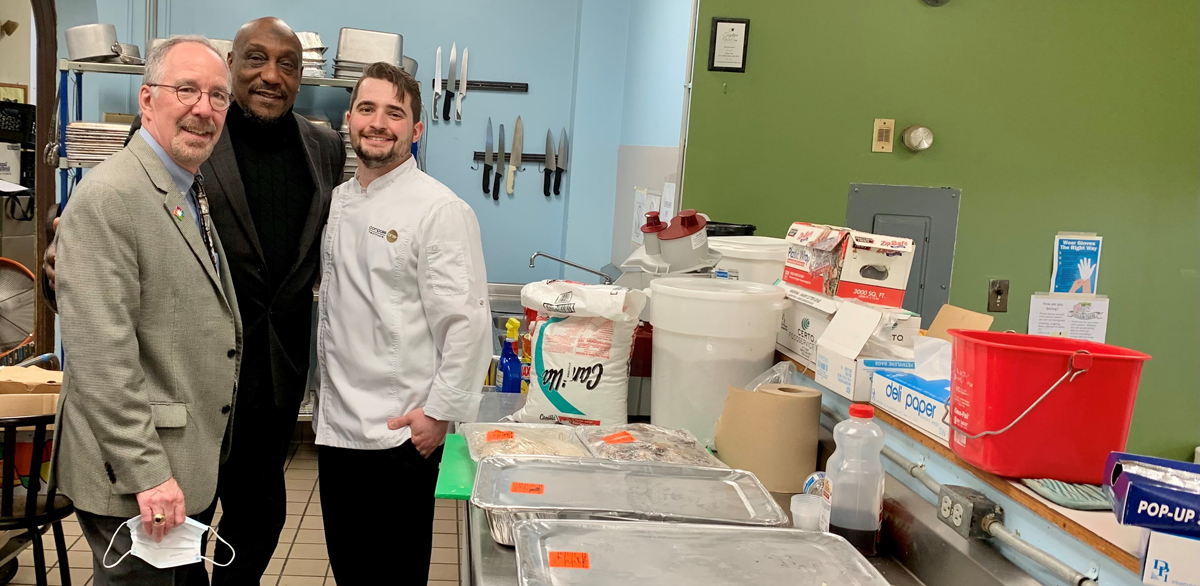<< Back
St. Vincent’s Joins Landmark HHC Partnership to Share Surplus Food with Communities in Need

April 08, 2022
St. Vincent’s Medical Center in Bridgeport is taking part in a new program aimed at reducing food waste and food insecurity in the local community.
The program, WasteNot, aims to reduce waste and find ways to put unused food to good use. The program is being implemented by Compass One, which oversees food services across Hartford HealthCare. The program started at the Hospital of Central Connecticut in New Britain.
St. Vincent’s and Compass One are partnering with Connecticut Foodshare for this first-of-its-kind program in Connecticut, which allows a food service department within a hospital to donate food to a local non-profit in need. St. Vincent’s provides food for approximately 1,000 people a day including patients, visitors and staff.
“With that kind of volume, we usually have some food left at the end of meal services that is still perfectly good for repurposing,” said Aaron Perrott, executive chef at St. Vincent’s. “The process is very simple but extremely effective in serving our community through food.”
The leftover food is chilled down very quickly to preserve its quality and safety. It is then placed into aluminum catering pans, labeled and frozen. St. Vincent’s is able to take part in this type of partnership due to the Bill Emerson Act, which was signed into law in 1996 and encourages food and grocery donations to non-profits so they could be distributed to those in need.
The food, approximately 30 to 40 pounds, is distributed once a week to The Thomas Merton Center in Bridgeport, a program of Catholic Charities of Fairfield County. The Thomas Merton Center is the largest food pantry and day shelter in the region, serving an average of 400 meals per day.
“We’ve had a longstanding relationship with St. Vincent’s but this program allows us to provide more healthy meals to our population,” said Bill Colson, director of The Thomas Merton Center. “We have been seeing more working families dealing with food insecurity and it means a lot that they can come here and have nutritious meals for their family.”
In addition to the leftover food, St. Vincent’s donates surplus dry goods or produce items that will expire before it gets used.
“This program enables St. Vincent’s to enhance its relationship with one of the major food programs in the city serving the neediest and most vulnerable of our sisters and brothers,” said Bill Hoey, vice president of mission services for St. Vincent’s. “One of the main social determinants of health is food security and this is helping to improve food security for individuals in our community.”